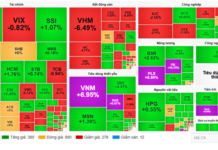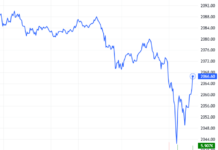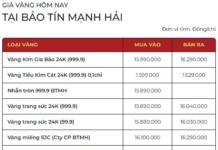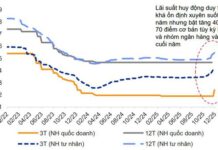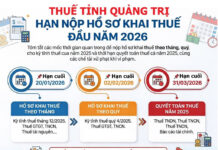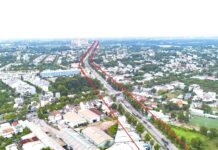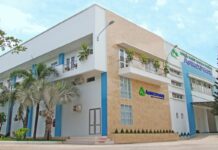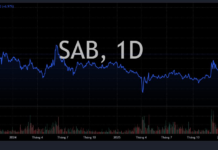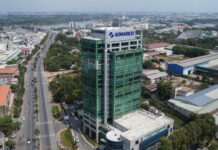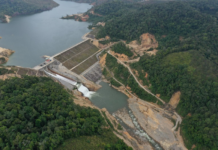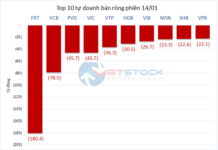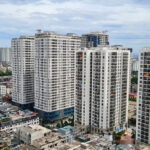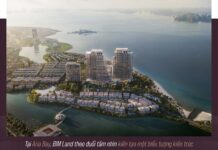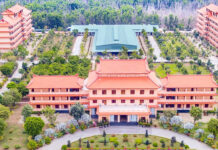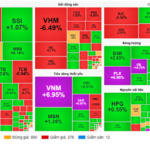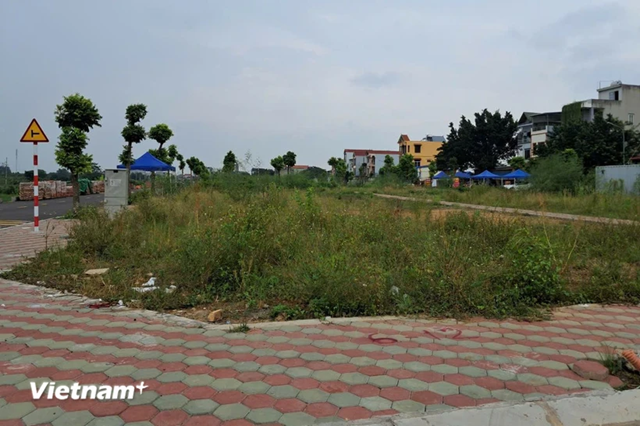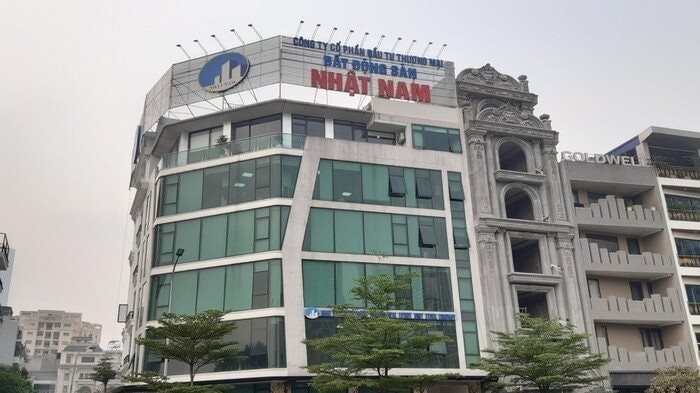
The location is introduced as the headquarters of Nhat Nam Real Estate Investment and Trading Joint Stock Company in Hanoi.
Out of the VND 9,113 billion raised, Thuy used over VND 4,144 billion to repay the principal for various contracts, while nearly VND 5,000 billion (from a total of 39,814 contracts involving 13,980 victims) was misappropriated by the Chairman of Nhat Nam Company and accomplices for personal purposes.
During the investigation, Thuy confessed that Nhat Nam Company was established by her, but in reality, no capital was contributed to the company. The purpose of establishing the company was to raise funds from investors through business cooperation contracts, then use the investors’ money to invest in real estate, restaurants, and hotels, aiming to generate profits for repayment.
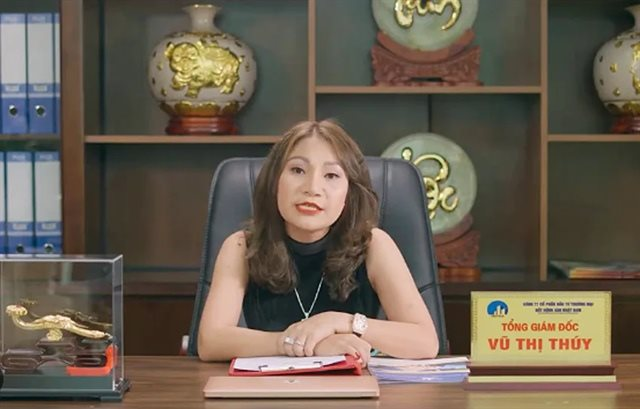
Ms. Vu Thi Thuy, CEO of Nhat Nam Company. Photo: CAND
The CEO of Nhat Nam Company denied hiring advisory board members to build the company’s image and reputation for fundraising. According to Thuy’s statement, approximately VND 900 billion was used for investment contributions.
This includes VND 40.8 billion invested in Ngoi Sao Company, VND 99 billion in Nhat Nam Son Tay Company, VND 450 billion in Song Da Nhat Nam Company, VND 98 billion in Song Da Invest Company, VND 88 billion in Nam Nhat Khang Company, and VND 191 billion to acquire a 30% stake in Song Da Company.
Additionally, Vu Thi Thuy used Nhat Nam Company’s legal entity to purchase approximately 30 land plots from residents in My Duc District, Hanoi, for VND 30-40 billion, 26 land plots in Thanh Hoa for VND 20 billion, 40 land plots in Dak Lak (with 20 plots under the name of Mai Thanh Tung, Thuy’s ex-husband) for VND 24 billion, and 5 land plots in Tay Ninh for VND 3.7 billion.
Nhat Nam Company also acquired 8 long-term tree-planting land plots in Phu Quoc for VND 67 billion. Thuy personally purchased 38 villa plots worth over VND 300 billion and invested VND 100 billion in the Luc Ngan Bac Giang project.
According to Thuy’s statement, the invested real estate properties could not be sold due to the economic downturn, leading to debt collateralization. Nhat Nam Company also spent approximately VND 100 billion on leasing premises to open 4 restaurants and hotels, but by the end of 2022, they had to close due to poor business performance.
The remaining funds were used to repay the principal and interest to investors. Thuy could not provide a basis for offering a 30% annual interest rate to investors. The CEO of Nhat Nam Company admitted to withdrawing investors’ contributed capital off the books, without proper accounting or declaration. By June 2023, the company had no funds left to pay investors’ profits.
The investigation agency recorded statements from 3,925 individuals who invested in Nhat Nam Company, totaling over VND 1,920 billion. Investors received more than VND 845 billion back and were defrauded of over VND 1,073 billion.
According to victims’ statements, they learned about Nhat Nam Company’s fundraising through social media and sales representatives. The company promised to repay both principal and interest daily within 2 years, with a profit margin of 168-192%.
Victims were also informed that Nhat Nam Company owned real estate properties across the country, valued at thousands of billions, which were used to secure business cooperation contracts with investors. The company claimed to operate profitable restaurants and hotels, generating daily profits to repay investors.
Nhat Nam Company assured investors that their funds would never be lost and would be compensated if lost. As a result, investors trusted and signed business cooperation contracts, submitting their funds to the company.
However, from around October 2022, Nhat Nam Company provided various reasons for not repaying investors, leading many to file complaints against Vu Thi Thuy for fraud and asset misappropriation.
Given the nationwide scope of the case and the large number of victims, the investigation agency delegated the investigation to local authorities to record victims’ statements. Additionally, the agency announced on various media platforms for victims to report to local investigation agencies.
Hanoi Apartments Overtake Land Plots as Leaders in the Secondary Market
In Q3/2025, land plot sales declined across all regions, primarily due to high average prices driving capital toward more liquid asset classes. Meanwhile, secondary apartment transactions continued to surge, reaching a two-year high in sales volume, with activity concentrated in yet-to-be-handed-over sub-districts.
Revitalizing Vintage Apartments: Overcoming the Challenge of Selling Aged Condos
Over the past period, condominium prices have continued to rise, yet liquidity has somewhat stagnated. This is primarily due to the fact that condominium prices have become excessively high, making it challenging for genuine residents to afford them.

